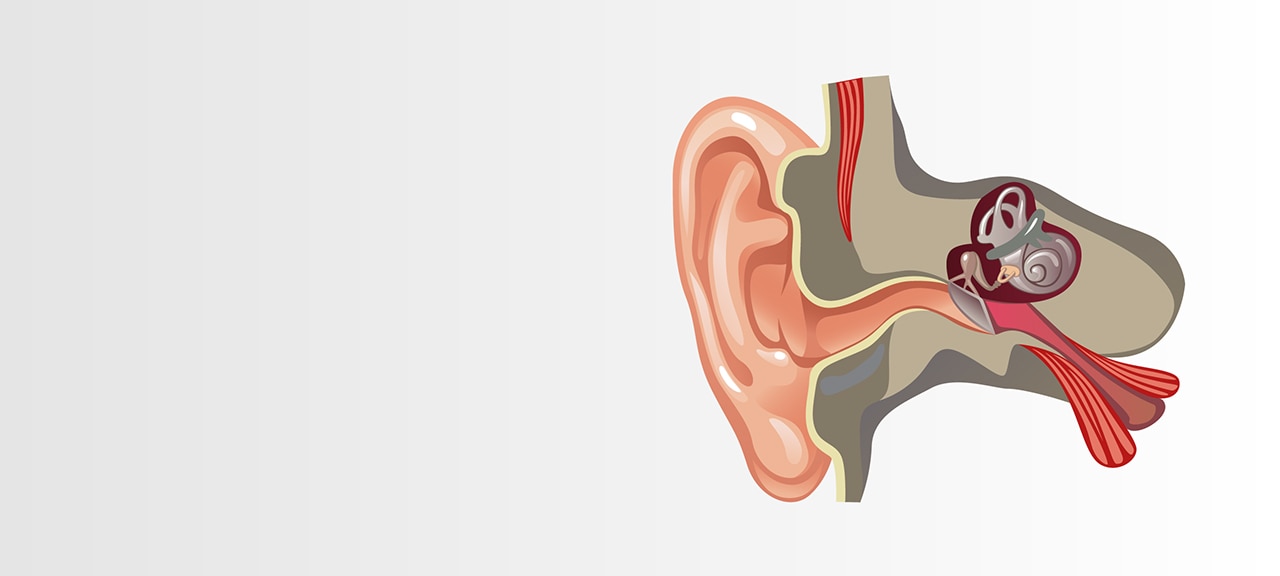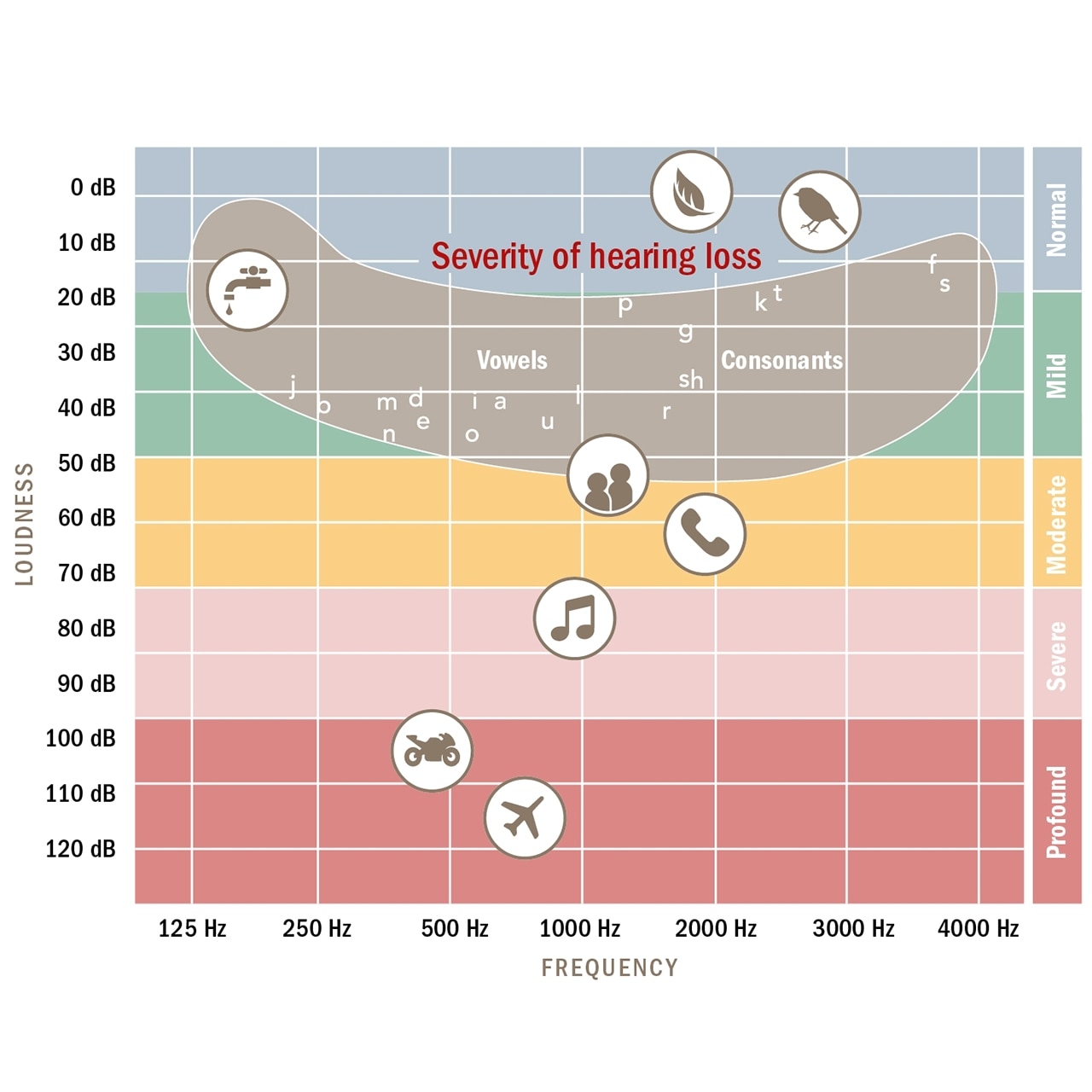Measuring Hearing Loss
Our speech is made up of tones and sounds at different volumes and in different frequency ranges. The “speech banana” is a visual representation of these sounds as consonants, vowels, and sibilants on an audiogram.
Professionals use these audiometric measurements to calculate a person’s individual hearing loss and select a suitable hearing aid.







